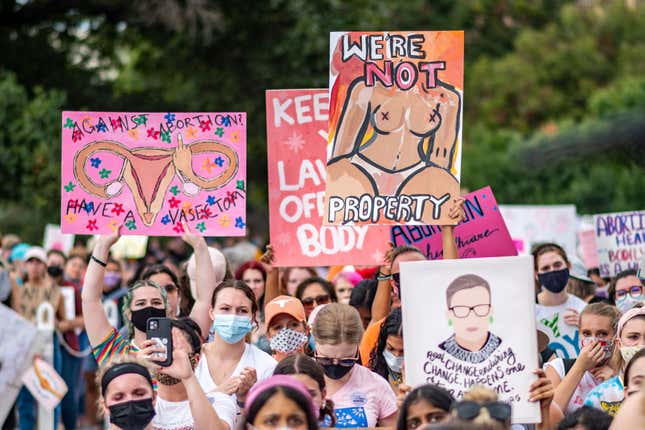Judge Tries to Deny Teen Abortion Over Her GPA
A Florida judge said the teen's B average means she lacks the maturity to have an abortion.
AbortionPolitics

When a 17-year-old girl in Florida, called “Jane Doe,” sought judicial bypass to have an abortion without the involvement of her parents, as state law requires, the judge presiding over her case deemed her GPA too low. The judge denied Doe the legal permission to have an abortion without her parents’ knowledge, presumably because having poor grades means a teenager should definitely be required to become a parent.
Hillsborough County Circuit Court Judge Jared E. Smith took particular issue with Doe testifying that she had a “B” average, despite records showing a lower GPA, and wrote in his decision that her “testimony evinces either a lack of intelligence or credibility, either of which weigh against a finding of maturity pursuant to the statute.” A district court later overruled that decision by a 2-1 margin, noting that Doe’s GPA “demonstrate[d] average intelligence for a high school student”—as if grades, academic achievement, or really any factor, let alone one so arbitrary, should dictate a minor’s human rights.
In the 38 states that require some form of parental involvement for minors seeking abortion care, reasoning like Smith’s could and often does deny teens judicial bypass. In 2014, Mother Jones analyzed 40 cases of teens seeking judicial bypass, and in three cases, their reporting found judges denied petitions because they deemed a teen who got pregnant by accident too immature to have an abortion. Paradoxically, this thinking implies someone who supposedly isn’t mature enough to have an abortion should be forced to give birth and possibly become a parent. In a similar vein, if Judge Smith was so concerned with Doe’s grades, I somehow doubt the physical and mental duress of forced pregnancy and birth would improve her GPA.
-

-

-

-

-

-

-

-

-

-

-

-

-

-

-

-

-

-

-

-

-

-

-

-

-

-

-

-

-

-

-

-

-

-

-

-

-

-

-

-







































